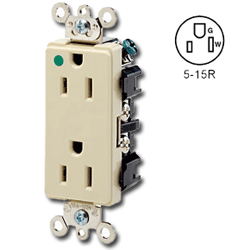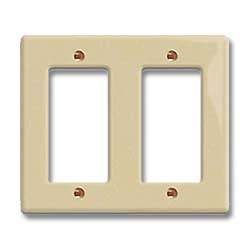I am in the process of wiring up the shop. With a concrete floor, all the outlets need to be GFCI.
I am using 2 gang boxes since you can never have enough outlets, but since I can feed non-GFCI receptacles from a GFCI receptacle, I have a problem with the face plate.
Is there a face plate that has openings for one GFCI and one regular receptacle for a 2 gang box? I would think this would be common, but my local Lowes does not carry one.
Maybe a double GFCI face plate would work?





 Reply With Quote
Reply With Quote









